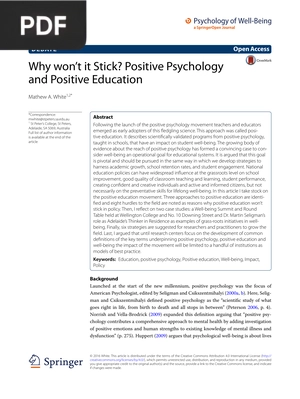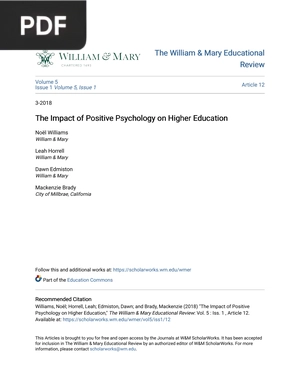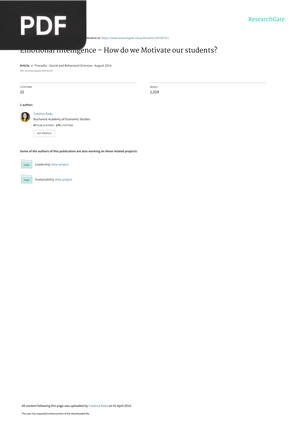Positive education - positive psychology and classroom interventions
Author: Martin E. P. Seligman and others
*Please wait a few seconds for the document to load; the time may vary depending on your internet connection. If you prefer, you can download the file by clicking the link below.
Loading PDF...
Document Details
Title: Positive education - positive psychology and classroom interventions
Author: Martin E. P. Seligman and others
Pages: 20
Size: 0.1 MB
Format: PDF



